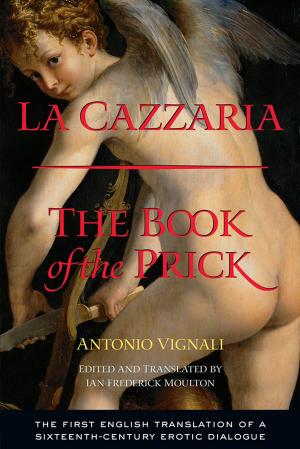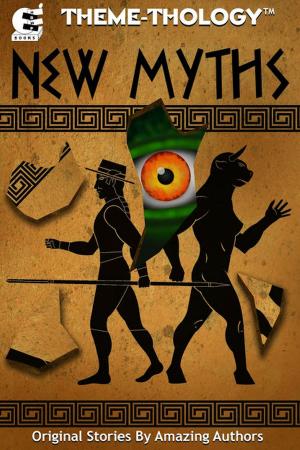| Author: | Modesto Arocha | ISBN: | 9781934804032 |
| Publisher: | Modesto Arocha | Publication: | July 30, 2011 |
| Imprint: | Smashwords Edition | Language: | English |
| Author: | Modesto Arocha |
| ISBN: | 9781934804032 |
| Publisher: | Modesto Arocha |
| Publication: | July 30, 2011 |
| Imprint: | Smashwords Edition |
| Language: | English |
Cuba is the birthplace of magical realism: there the truth often masquerades as a joke, and jokes often conceal the truths that cannot be spoken.
The joke began on January 1, 1959 and is now the world's longest running joke. It has transformed a nation that once had the third-highest GPA in the Western Hemisphere into a pauper state. It has endeavored to turn a people once proverbially happy and carefree into a grim pessimistic tribe of automatons where individuality and initiative are punished and passivity and stagnation is the only way of life. This is the real legacy of the Cuban Revolution, and a legion of doctors setting the bones that the Secret Police break, or a legion of teachers teaching the young how not to think, cannot change that reality.
Fidel Castro and his brother Raul ("Big Brother" and "Little Brother") have always been targets for the humor of the Cuban people. The first newspaper that Castro suppressed upon taking power in Cuba in 1959 was not, as most believe, the Diario de la Marina (founded in 1832), the country's oldest newspaper and an inveterate enemy of Communism before and after the Revolution. No, the first newspaper that Castro ordered shut was Zig-Zag, Cuba's Mad Magazine. He next banned Cuba's most beloved comedian, Leopoldo Fernandez ("Trespatines"), because while performing on a stage with a large portrait of Fidel Castro, he had quibbled pointing to Castro's picture: "And that one there, we have to hang him very high."
In the next 45 years, there would be no more jokes told in public in Cuba. But the Cuban people did not lose their sense of humor, now steeped in pathos, but took it underground.
Twenty years ago, a resourceful man living in Cuba, Modesto Arocha, began to compile these jokes about the Revolution and managed to smuggle his collection out of the country.
Now this book, published in the U.S. and banned, of course, in Cuba, stands as a monument to the indomitable spirit of a few heroic (and funny) men who would not let the laughter die in Cuba amid the endless propagandistic din.
Laughter can be a cry of despair as much as tears can be an expression of joy. There are essentially two ways to deal with the predations and privations of tyrannical rule -- to surrender to its authority and become its slave or accomplice; or to fight it with the only weapons at your disposal -- contempt and ridicule sublimated into humor.
Cuba is the birthplace of magical realism: there the truth often masquerades as a joke, and jokes often conceal the truths that cannot be spoken.
The joke began on January 1, 1959 and is now the world's longest running joke. It has transformed a nation that once had the third-highest GPA in the Western Hemisphere into a pauper state. It has endeavored to turn a people once proverbially happy and carefree into a grim pessimistic tribe of automatons where individuality and initiative are punished and passivity and stagnation is the only way of life. This is the real legacy of the Cuban Revolution, and a legion of doctors setting the bones that the Secret Police break, or a legion of teachers teaching the young how not to think, cannot change that reality.
Fidel Castro and his brother Raul ("Big Brother" and "Little Brother") have always been targets for the humor of the Cuban people. The first newspaper that Castro suppressed upon taking power in Cuba in 1959 was not, as most believe, the Diario de la Marina (founded in 1832), the country's oldest newspaper and an inveterate enemy of Communism before and after the Revolution. No, the first newspaper that Castro ordered shut was Zig-Zag, Cuba's Mad Magazine. He next banned Cuba's most beloved comedian, Leopoldo Fernandez ("Trespatines"), because while performing on a stage with a large portrait of Fidel Castro, he had quibbled pointing to Castro's picture: "And that one there, we have to hang him very high."
In the next 45 years, there would be no more jokes told in public in Cuba. But the Cuban people did not lose their sense of humor, now steeped in pathos, but took it underground.
Twenty years ago, a resourceful man living in Cuba, Modesto Arocha, began to compile these jokes about the Revolution and managed to smuggle his collection out of the country.
Now this book, published in the U.S. and banned, of course, in Cuba, stands as a monument to the indomitable spirit of a few heroic (and funny) men who would not let the laughter die in Cuba amid the endless propagandistic din.
Laughter can be a cry of despair as much as tears can be an expression of joy. There are essentially two ways to deal with the predations and privations of tyrannical rule -- to surrender to its authority and become its slave or accomplice; or to fight it with the only weapons at your disposal -- contempt and ridicule sublimated into humor.















